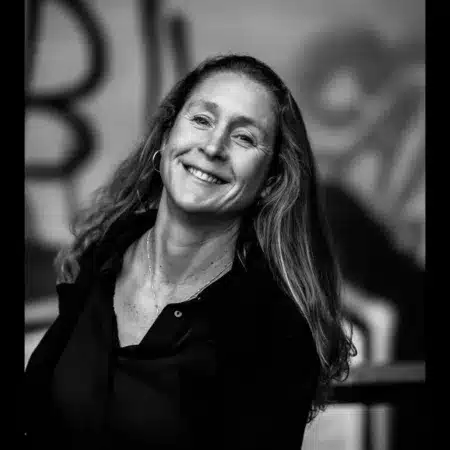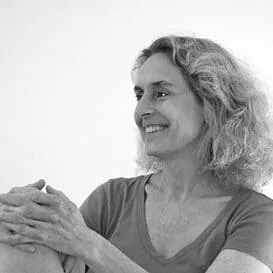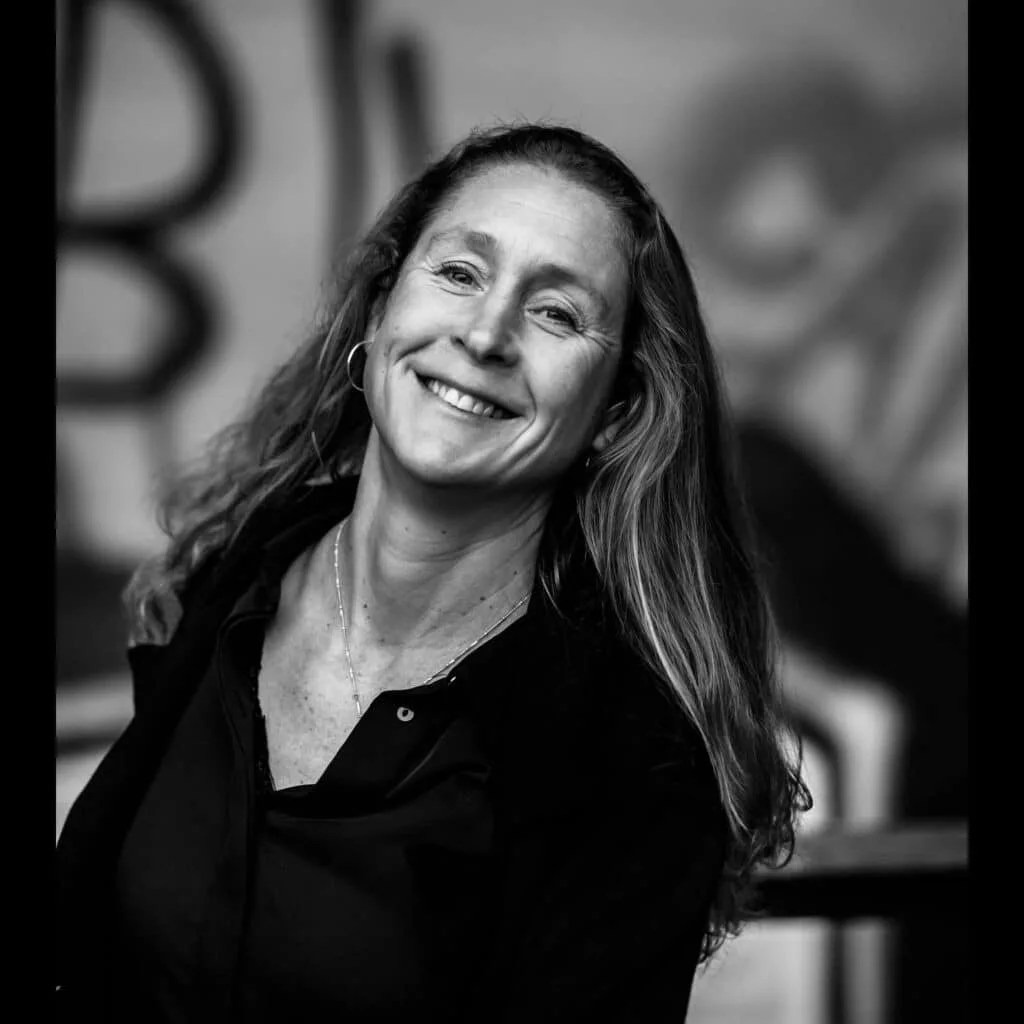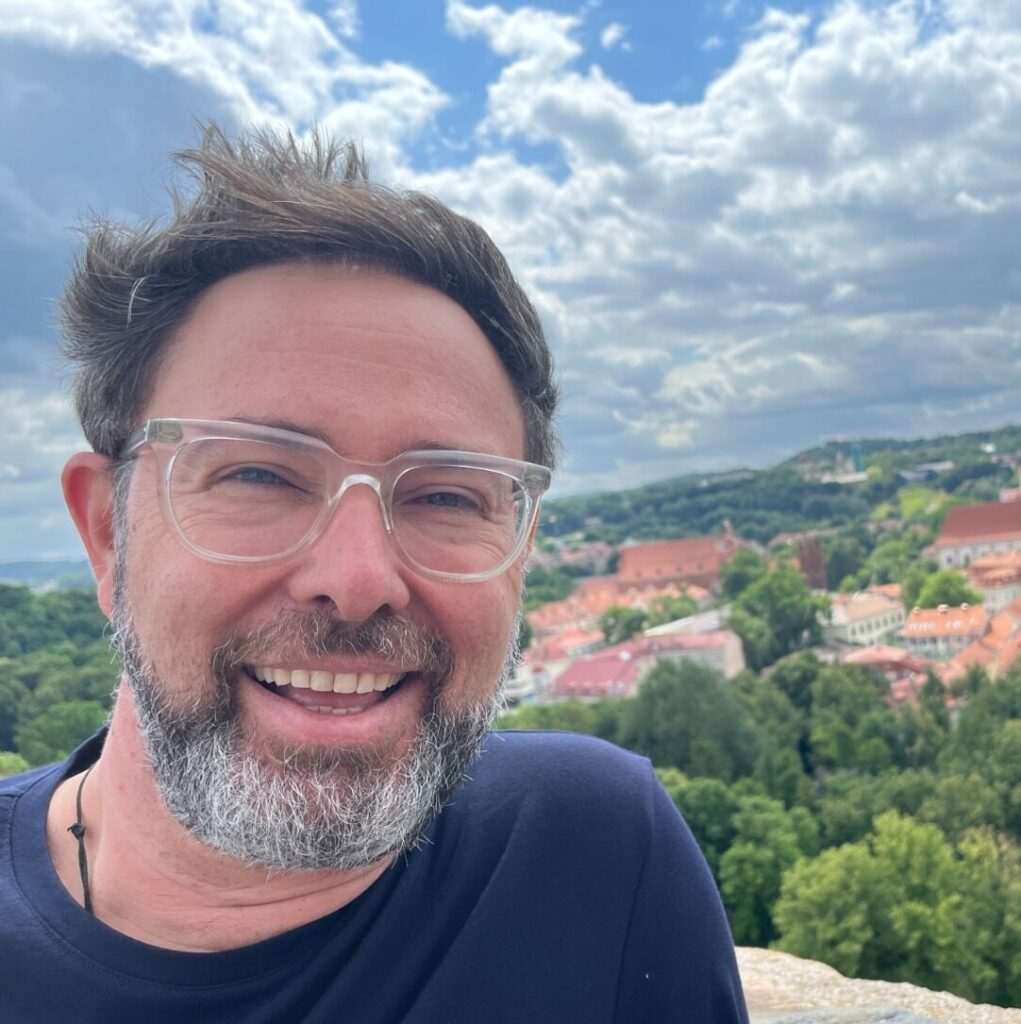Second Promotion
- October 2024 / January 2026 -
Developmental Somatic Psychotherapy (DSP)
Full training program with Helena Kallner in Valencia (Spain) – in English with translation into Spanish
Valencia. October 2024 - January 2026

Psychotherapist, teacher and supervisor of Developmental Somatic Psychotherapy (DSP).

General Health Psychologist and Gestalt Psychotherapist.
A bilingual English-Spanish, five module training program.
Developmental Somatic Psychotherapy (DSP), created by Dr. Ruella Frank, Ph.D., emphasizes a phenomenological attitude and explores the bodily roots of experience. Developmental Somatic Psychotherapy is a movement-oriented approach to psychotherapy within a gestalt therapy framework. The training program teaches the practitioner to attend to body-to-body dynamics within the unfolding therapeutic relationship.
The aesthetic aspects of contacting, how we feel and sense ourselves in relation to another, is crucial for our understanding of the situation that we are living. From the outset of life, and before we have a verbal language, we express our feelings, needs, dreads and desires through our moving bodies in relation. And it is through movement that we discover and learn what we can and cannot do in relation to others and the environment in which we are embedded.
This lived bodily aspect of experience remains fundamental for how we know and make meaning of our world, throughout life. However, often this dimension resides in the background and we rarely pay attention to it. Heightening our awareness of our lived body can reveal important information about how we are experiencing the situation we are living. This can be specifically important and powerful within the therapeutic relationship, as it supports awareness of enduring relational-and existential themes unfolding between therapist and client.
DSP theory teaches us how the lived body, which is the root of our psychological functioning, is a fundamental aspect of our intelligence, even if it is not always valued as such. When we bring movement to the foreground it reveals crucial information about the situation we are living in at any given moment. This training program teaches the practitioner to cultivate their kinesthetic awareness and develop their ability to understand their patient through movement.
Subtitled discussion of Helena Kallner and David Picó about DSP.

Teaching methodology
The proposed teaching methodology aims to sensitize the participants to body movement and its application in therapeutic work, with the theoretical basis of DSP.
The DSP-theory teaches a comprehensive system describing fundamental movement patterns. The theory provides the practitioner with a framework for observation, formulation, and therapeutic intervention – that is dialogic, phenomenological, field-sensitive, and experiential. Experience is at the heart of the training, and through movement experiments the learners are practicing to sensitise themselves to their kinesthetic experience and pay attention to micro movements in themselves and another. Developing a clear felt experience of one’s own moving body in relation supports the therapist to uncover that which is communicated nonverbally in sessions, and thus enhance their bodily knowing.
Contents
The first and second module attends to gestalt therapy as a phenomenological and aesthetic approach. The most central principles of the DSP-theory are introduced, in particular kinesthetic resonance and the sequence of the six fundamental movement patterns and their psychological functions. These modules highlight the importance of developing our kinesthetic awareness: the qualitative dynamics of moving. We specifically explore the fundamental movement patterns yielding-with (being-with), pushing-against and reaching for.
The third module attends to postural dynamics: the bodily dimensions and their implicit co-created meanings. We continue with the sequence of the six fundamental movements and their psychological functions, exploring grasping-onto, pulling-toward and releasing-from. The fourth module presents an aesthetic and phenomenological approach to psychopathology, and how we can analyse the emerging situation through movement. In particular the focus for this module is kinesthetic remembering: a somatic and developmental exploration of experienced time.
In the fifth module, we will apply the DSP- theory to examine the bodily roots of developmental trauma and traumatic attaching, from its origins in the infant-caregiver dyad. We will also attend to the re-traumatizing experiences that occur in psychotherapy – for both therapists and clients.
Developmental trauma happens when the caregiver is not able to respond to the child in such a way that the child feels satisfyingly met enough of the time. This workshop will consider the bi-directionality of attaching, and how both parent and child powerfully impact each other through movement dynamics. We will also attend to how unspoken stories and intergenerational trauma lives through the moving-feeling body.
The relational foundation that is set early in life surfaces in adult contacting and of course in psychotherapy sessions, and like in the caregiver-baby dyad therapists and clients can inevitably re-traumatize each other. In this workshop we will explore how these early patterns influence the unfolding therapeutic relationship, and how we can work through these habitual gestalts.
Faculty

Helena Kallner
Main Trainer
Helena is a psychotherapist and practices Gestalt psychotherapy in Stockholm. She is a teacher and supervisor for Developmental Somatic Psychotherapy™. She gives workshops and trainings internationally. She is currently working on her PhD at the Metanoia Institute / Middlesex College.

David Picó
Translator and Assistant Trainer
David is a psychologist and psychotherapist practicing psychotherapy in Valencia. He is a supervisor for Developmental Somatic Psychotherapy™ and a trainer in Gestalt Therapy at Terapiados Formación and Centre Gestalt. He also leads workshops internationally.
Schedule and place
Timetable
Each module consists of 24 hours, which are distributed as follows:
- Thursday from 4:00 p.m. to 9:00 p.m.
- Friday and Saturday from 9:30 a.m. to 1:30 p.m. and from 3:30 p.m. to 7:00 p.m.
- Sunday from 9:30 a.m. to 1:30 p.m.
In addition to the face-to-face meetings, there will be a 2-hour Zoom follow-up session between the modules, the times and dates of which will be announced at the start of the training.
Dates
- Module 1: October 17-20, 2024.
- Module 2: January 16-19, 2025.
- Module 3: May 8-11, 2025.
- Module 4: October 2-5, 2025.
- Module 5: January 15-18, 2026.
Place
The course is face-to-face and will take place in Valencia (Spain). The exact location will be communicated to participants at a later date.
Price and economic conditions
Deadline for registration: September 17, 2024.
The total cost of the course is €3,400 (€100 for reservation fee + €425 for the registration + €2,875 for the course), to be paid in the following modalities:
- One-off payment before the start of the course: This method of payment is subsidized by the waiver of the registration fee. The order of registration will take into account the date of payment of the reservation fee. A payment of 100 € will be made at the time of booking, and a single payment of €2.875.
- Payment in installments during the course:
- Payment of the reservation fee (€100). The order of registration will take into account the date of payment of the reservation fee.
- Formalization of the place by paying the registration fee (€425) until September 17, 2024 until September 17, 2024.
- There are two options for payment in installments (*):
- Payment by module: If you wish to pay by module, the payment will be divided into 5 installments of €575 each. Payments can be made by bank transfer at least 7 days before the start of each module or by direct debit.
- Monthly payment by direct debit: If you wish to pay monthly, the payment will be divided into 15 installments of € 205 each. This payment method is only accepted by direct debit and is subject to a surcharge for administration fees, making the total cost of the course €3,600.
Important: Reservations are non-refundable.
* The course must be paid for as a whole. It is not possible to pay for individual modules. Payment in installments is intended to facilitate payment of the course. If the student is unable to attend a module, they must still pay for it.
